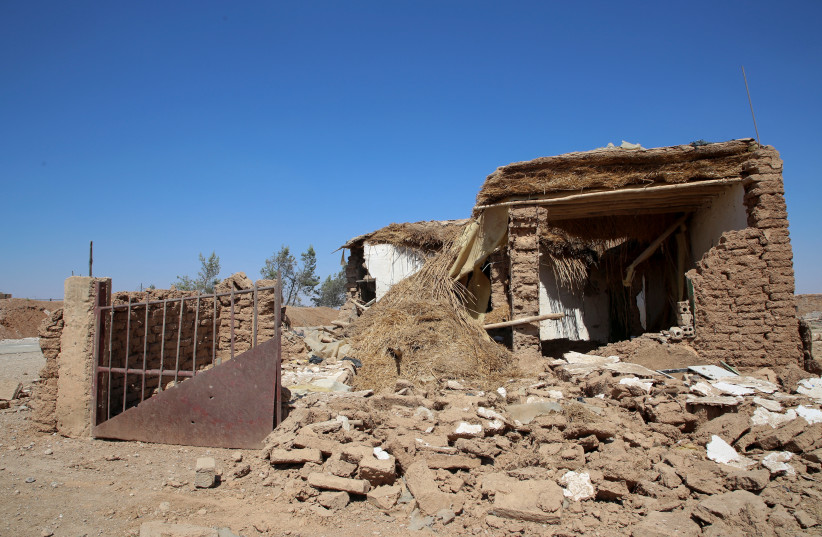Russia on Friday signaled an end to a long-running UN aid operation into northwest Syria from Turkey after vetoing a one-year extension and then failing in its own push for a six-month renewal and greater international reconstruction efforts.
The current UN Security Council mandate for UN humanitarian aid - including food, medicine and shelter - to some 4 million people in opposition-controlled northwest Syria from Turkey expires on Sunday.
Russia's Deputy UN Ambassador Dmitry Polyanskiy said the only solution that Moscow would not veto was its own. That draft resolution failed on Friday after only Russia and China voted in favor. The United States, Britain and France voted against the Russian text, while the remaining 10 council members abstained.
"I do not see at this point any other option. Given the fact of the words that have been said today, I think this has been made almost impossible," Polyanskiy told reporters, adding that another council member could again put Russia's text to a vote.
Before its own draft resolution failed, Russia had vetoed a proposal for a one-year extension - drafted by Ireland and Norway - which received 13 votes in favor. Despite a "no limits" strategic partnership with Moscow, China abstained on the vote.

"This is a life and death issue and tragically, people will die because of this vote and the country who shamelessly deployed the veto," US Ambassador to the United Nations, Linda Thomas-Greenfield, told the council.
"I do not see at this point any other option. Given the fact of the words that have been said today, I think this has been made almost impossible."
Russia's Deputy UN Ambassador Dmitry Polyanskiy
'NOT DAUNTED'
China's UN Ambassador Zhang Jun called on all council members "not to give up" and to continue negotiations, while Ireland's UN Ambassador Geraldine Byrne Nason said: "We're not daunted by this veto. This is not the end of the road."
However, when asked if Russia would again veto any draft text that was not its own, Polyanskiy replied: "Obviously."
Russia argues that the UN aid operation violates Syria's sovereignty and territorial integrity. It says more aid should be delivered from inside the country, raising opposition fears that food and other aid would fall under government control.
The United States, Britain and France said on Friday that a six-month extension is not long enough for aid groups to plan and operate effectively.
Western powers are also against funding broad reconstruction efforts until progress is made toward a political solution in Syria, where a crackdown by President Bashar al-Assad on pro-democracy protesters in 2011 led to civil war.
The Security Council vote on the authorization of the aid operation has long been a contentious issue, but this year also comes amid heightened tensions between Russia and Western powers over Moscow's Feb. 24 invasion of Ukraine.
In 2014, the Security Council authorized humanitarian aid deliveries into opposition-held areas of Syria from Iraq, Jordan and two points in Turkey. But veto powers Russia and China have whittled that down to just one Turkish border point.
UN Secretary-General Antonio Guterres appealed to the council last month to extend its approval of the aid operation, telling the body: "We cannot give up on the people of Syria."
